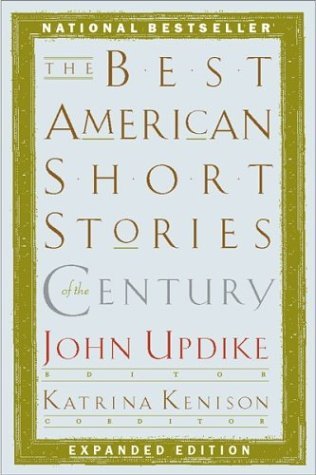Today is the fourth anniversary of Mirror With Clouds. To celebrate, I am posting my top ten favorite short stories that I’ve read in 2015. They are in order from 10 to 1.
10.) Here We Are by Dorothy Parker- A very funny story with one of my favorite quotations of the year:
“We have been married,” he said, “exactly two hours and twenty-six minutes.”
“My,” she said, “it seems like longer.”
9.) Miami-New York by Martha Gellhorn- One of Ernest Hemingway’s wives seems to have more of a sense of humor than he did.
8.) Death of a Favorite by J. F. Powers – One of my favorite narrators comes in the form of a cat.
7.) The Country Husband by John Cheever – A depressing but brilliantly written story about life in the suburbs with Beethoven’s “Moonlight Sonata” as the soundtrack:
Then Donald Goslin, who lived at the corner, began to play the “Moonlight Sonata”. He did this nearly every night. He threw the tempo out the window and played it rubato from beginning to end, like an outpouring of tearful petulance, lonesomeness, and self-pity – of everything it was Beethoven’s greatness not to know. The music rang up and down the street beneath the trees like an appeal for love, for tenderness, aimed at some lonely housemaid – some fresh-faced, homesick girl from Galway, looking at old snapshots in her third-floor room.
6.) The Half-Skinned Steer by Annie Proulx – I liked this story so much I read more of Proulx’s Wyoming stories from her collection Close Range.
5.) Where Are You Going, Where Have You Been? by Joyce Carol Oates – This is the story that has pushed me beyond simply an appreciation for Oates’ work. It’s by far the scariest story I read this year.
4.) In the Gloaming by Alice Elliot Dark – Tear jerker? Yes. Sentimental? No. Saddest story I read this year.
3.) God Rest You Merry, Gentlemen by Ernest Hemingway – A disturbing story with one of my favorite first lines:
In those days the distances were all very different, the dirt blew off the hills that now have been cut down, and Kansas City was very like Constantinople.
2.) A Silver Dish by Saul Bellow – The title by no means gives away how funny and irreverent this story is.
1.) A Voice in the Night by Steven Millhauser- My fascination with Steven Millhauser’s work only increased with this story and it contained one of my favorite final lines:
A calling. Not Samuel’s call but another. Not that way but this way. Samuel ministering unto the Lord, his teacher-father ministering unto the generations. And the son? What about him? Far, far to the west of everywhere, ministering unto the Muse. Thanks, Old Sea-Parter, for leaving me be.








